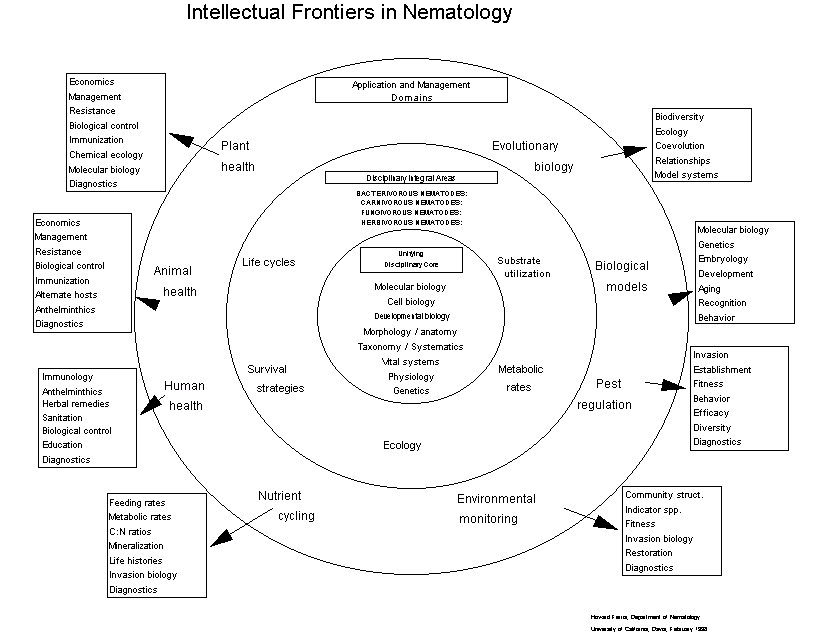Nematology: Current Research and Extension
Priorities; 1997
Nematodes and
Nematology
Nematodes are invertebrate roundworms that inhabit marine,
freshwater, and terrestrial environments. They include parasites
of plants, animals and humans. Many species feed on microbes and
some on other nematodes. The Science of Nematology has
disciplinary groupings, including Parasitology, Helminthology and
Plant Nematology. The common linkage across these groupings is the
organism.

The Situation
The negative and positive impacts of nematodes on the
environment, on plants, on animals, and on humans often require
management. The sustainability of our biosphere depends on the
development of management strategies that are environmentally
benign and economically feasible.
The Opportunities
There are important research directions and developments:
**Attraction, repulsion, sensory confusion and life-cycle
disruption of nematodes through natural products chemistry.
**Immunization of animal, human and plant systems against nematode
infections.
**Nematode population regulation through biological control.
**Host germplasm that is resistant or tolerant to parasitic species
provides genetic sources for transgenic approaches to
protection of plants and animals
**Innovations in ecosystem design that result in temporal and
spatial rearrangement of host and parasite species.
**New drug sources through plant products used in homeopathic
medicine and untapped plant products.
**The use of nematodes as bioindicators, for bioremediation of
degraded soils, and for biocontrol of insects.
These approaches offer challenges, including their target-specific
nature and the need for rapid and reliable diagnostic tools. The
commonalities of priority and endeavor across nematode groups and
component disciplines are evident.
|
The Constraints in
Plant Nematology
A crisis is developing as the need for research, education and
outreach in Plant Nematology increases while support for these
activities decreases. There is an enlarging gap between what
society needs and what scientists can supply.
Needed Action
Research and education units in Nematology require
strengthening and support to allow replacement of outdated
technology with opportunities offered through modern research. The
situation is critical - the needs and opportunities are now. This
is an integral component of our world leadership to ensure a
sustainable biosphere.
Return to General Nematology Menu
